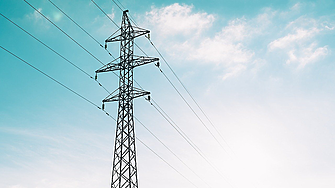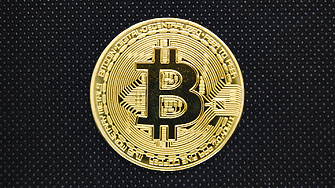The problem is not in Ukrainian import, but that the prices in Bulgaria are going back to reasonable boundaries
"There is a fundamental problem with such an approach. Anyone who produces and sells something wants to eliminate competition. This is not a Bulgarian phenomenon, nor is it only a phenomenon with agricultural producers," commented Luchezar Bogdanov from the Institute for Market Economics on the "Who Speaks" Darik show, about the European Commission's proposal to introduce a temporary ban on five Ukrainian foods - sunflower oil, sunflower seeds, corn, and wheat - in five European countries, including Bulgaria, which are most affected by the increased imports due to the war.
Правителството одобри Наредба за въвеждането на военно обучение
The ban will be imposed immediately after Poland, Bulgaria, Hungary, Slovakia, and Romania accept it and will be in effect until June 5 when the EU's decision on duty-free imports of Ukrainian agricultural products expires. Next week, EU countries are expected to vote on a one-year extension of duty-free imports of Ukrainian agricultural products.For Bulgaria, the decision came into force on April 24 and will continue until June 30, 2023. The surprise is that the import of 20 goods is prohibited.
Решетки за двамата трафиканти на мигранти
Luchezar Bogdanov was infinitely critical of the Bulgarian government's decision, arguing that it goes against basic market principles. “This is a fundamental dispute - whether we should allow our neighbors to sell to us, or close our markets. Wars have been fought over these freedoms and prohibitions. According to him, this ban, beyond the moral protection, is unlikely to work for the simple reason that these are internationally traded exchange-traded commodities. These grains will reach the European market, said Bogdanov. Whether they will reach through Bulgaria or through another place, they will still be offered and ultimately be part of the supply and demand equation, he added.
"Bulgaria is a huge net exporter of wheat. Domestic consumption is probably between 1/6 and 1/4 of what is produced. In any case, Bulgarian producers have to sell to the global market. Their pain is actually that the price of grain is falling on international markets," the economist explained. Luchezar Bogdanov reminded that currently the price of wheat is higher than the average for the five years before the war. He clarified that the complaint is not whether Ukrainian grain is coming or not to Bulgaria, the question is that prices are falling. "That is the complaint that is masked as a halt to imports that would have flooded the Bulgarian market. The problem is that prices are falling and Bulgarian producers now have to sell cheaper than last spring and summer," Luchezar Bogdanov said.
Бум на разпорежданията за запор на пенсии
"The data we see does not suggest that Ukrainian grain is much cheaper, but of course, when they are a large producer, the fact that they sell to the market leads to lower prices," the economist added. According to him, the important thing is that both sunflower and wheat, even after the price drop, are still significantly more expensive than they were in the five-year medium-term period before the war.
"Undoubtedly, the trend is unsustainable - if you look at the moment at the prices of oil and wholesale in world markets - there is no way to stop this downward trend. What happened in 2022 - the panic around the war - everyone was betting that oil prices would rise to $200, not to fall below $70. This is a trend that cannot be stopped," the economist said.
Всичко за 49-ото Народно събрание четете ТУК
Най-интересните разговори от ефира на Дарик слушайте в подкаста на радиото в Soundcloud, Spotify, Apple Podcasts и Google Podcasts





.jpg)
.jpg)
.jpg)





